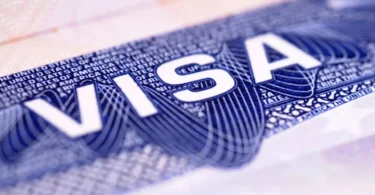Kuwait has declared that all international employees hired in the private sector will soon be required to obtain an exit permit from their employer before leaving the country. The new law, set to take effect on July 1, 2025, introduces a new layer of regulation under the nation’s controversial Kafala sponsorship structure.
The Public Authority of Manpower allocated the update through a declaration on its official X account, citing a circular provided by First Deputy Prime Minister Sheikh Fahad Yousef. The action is planned to enhance supervision of the relocation of expatriate employees and ensure a balance between the rights of employees and employers.
Table of Contents
Meaning Of An Exit Permit
An exit permit is a lawful document or digital approval that permits international employees to exit a host nation. Several Gulf nations comprise this condition as part of the kafala system, which directly ties the employee’s visa and mobility to their employer (sponsor).
If you do not have this permit, authorities can prevent employees from exiting the country, even in the event of family emergencies, after their contracts expire, or at the end of their service.
Why Is It Needed In Kuwait?
Kuwait’s new policy intends to:
- Boost checking of international workforce relocations
- Deter disagreements between employers and workers
- Boost employer regulation over sponsored employees
- Reduce unlawful employment transfers or absconding events.
While the process will be obtainable online, it still keeps the power squarely in the employer’s hands, increasing concerns among human rights supporters.
Gulf Nations And Exit Permit Guidelines
The kafala system is broadly utilized across the Gulf nations, but changes have differed hugely:
- Kuwait (from July): New condition for private industry employees.
- Saudi Arabia: An exit and re-entry permit is needed from the sponsor.
- Qatar (No, since 2018): Exit permit eradicated for a lot of employees.
- UAE (No): Employers cannot withhold passports or limit trips.
Notably, Qatar made significant modifications leading up to the 2022 FIFA World Cup, including the ban on exit permits for several employees. On the contrary, Saudi Arabia and Kuwait have maintained stringent regulations.
Meaning Of This For International Workers
Beginning from July 1, 2025, private industry employees will:
- Require detailed online approval from their employer to travel
- Experience prospective delays or refusals in emergency trips
- Be more dependent on the mercy of employers for mobility
This law will be applied regardless of the employee’s employment class or job duration and could impact more than 2 million international employees currently working in Kuwait’s private industry.
Human Rights Concerns
Rights teams have long criticized the kafala structure, describing it as exploitative. They debate that exit permits:
- Undermine liberty of movement
- Promote forced labor
- Permit employers to exploit and threaten employees with trip limitations.
The new law in Kuwait is anticipated to continue examining its labor practices, primarily among the foreign community.
Kuwait’s decision to authorize exit permits for private industry employees marks a significant shift in its labor policies. While authorities assert it facilitates supervision and fairness, critics warn it could deepen dependency and exploitation. As the July 1, 2025 deadline approaches, international employees and employers alike will be required to adjust to the new digital exit clearance system.






